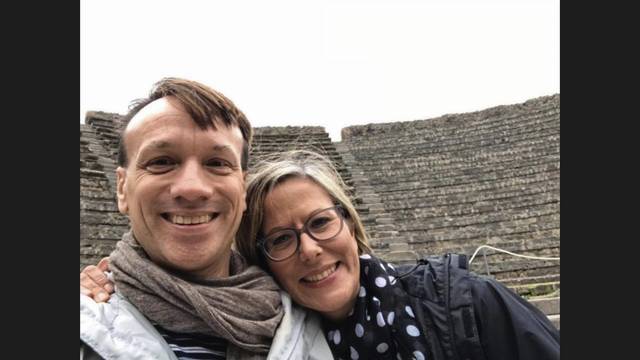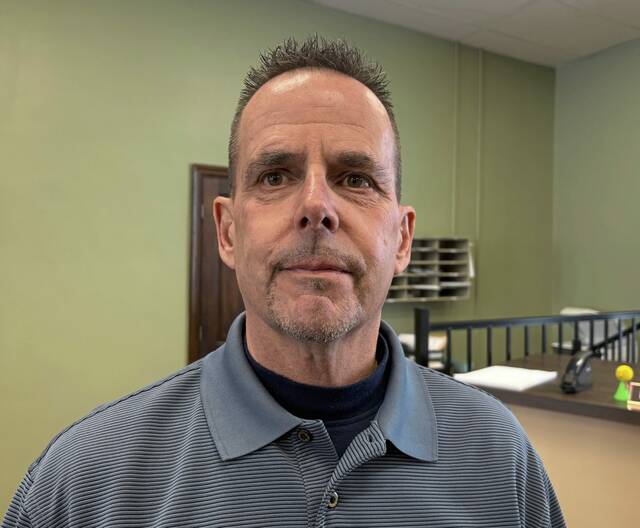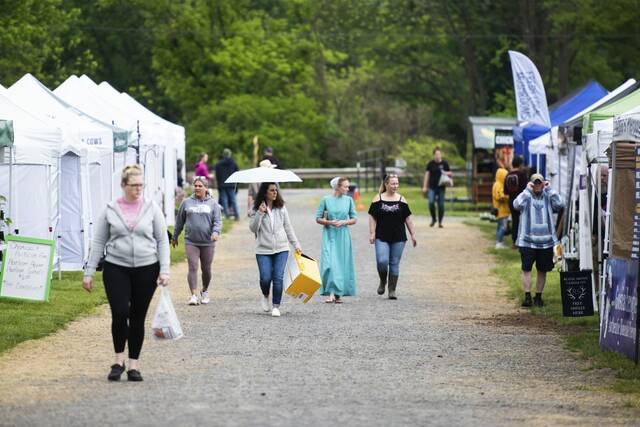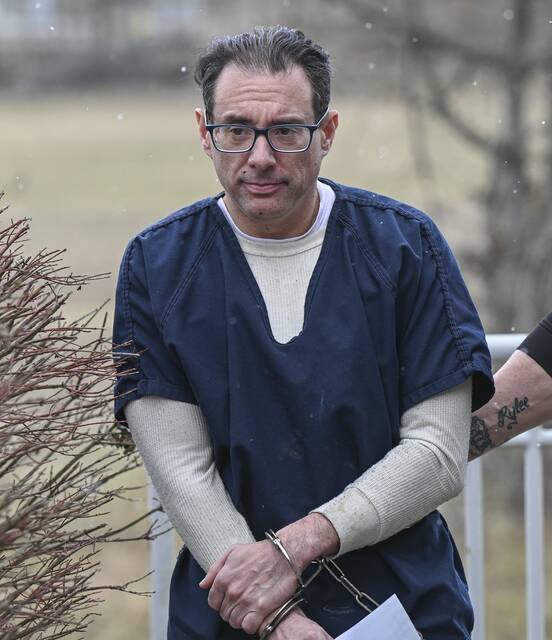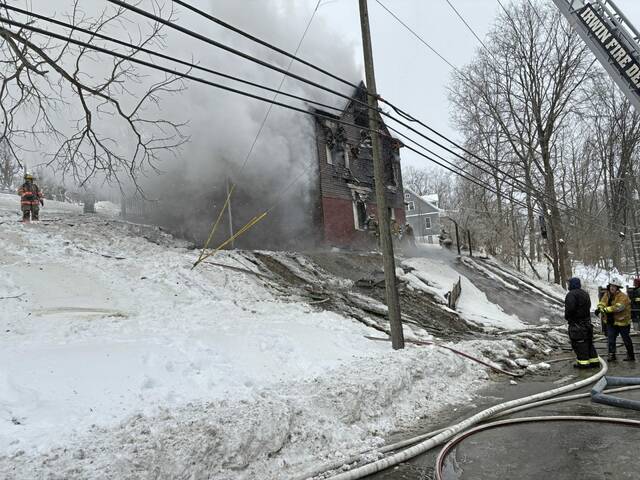Being quarantined at home for protection from the coronavirus pandemic doesn’t have to be all that bad — particularly if the view includes St. Peter’s Basilica at Vatican City in Rome, a former Greensburg couple said.
“In order to leave the house, you have a ‘self-declaration’ on a piece of paper” saying you are going to the grocery store, pharmacy, bread store or bank, said Ken Baldonieri, an attorney who had a practice in Greensburg.
Since the country went into lockdown on March 9, he and his wife, Amy Baldonieri, both of whom grew up in Latrobe, said they are persevering and managing not to get too stir crazy. Italy is making plans to lift some of the restrictions beginning May 4.
During the quarantine, the couple, who have lived and worked in Rome since September 2017, were not able to take a quick side trip to the Colosseum or a touristy jaunt to see the pope at Vatican City during Lent. It, too, is now closed to visitors.
In what could be a scene out of a World War II movie depicting Nazi-occupied Europe, the Baldonieris are to carry their “papers” when they leave the apartment. Rome’s civil police — separate from regular police — can hand out fines of about $3,200 for any unapproved outings, Ken Baldonieri said.
They, like many of their fellow Americans, are working from home — Amy in her job as the development director for the American University of Rome and Ken as a teacher of English as a second language at a private school in Rome. The schools were closed in early March, including the American University where Amy worked and the private school where Ken taught, and will not reopen this school year, Ken said.
So, their routine includes exercise, watching television and “cooking almost every day” because the restaurants are closed. Amy said she has been doing yoga, which can be a calming exercise routine unto itself. They have a terrace with a decent amount of space where they can be outside and enjoy the fresh air without fear of infection, Ken said.
He said it seems the message of staying at home and not gathering in crowds has worked for the Romans.
“Rome has not been overwhelmed” with covid-19, Ken said.
The Italian government announced in mid-April that it intends to keep the restrictions in place until Sunday.
“We have heard no further concrete plans regarding the time beyond that date, but the speculation is that it will be a very gradual re-opening of the country,” Ken said.
Plans for lifting the restrictions have yet to be announced, but news reports say the government wants to wait until it can get a test for antibodies that the body creates to fight the coronavirus.
The couple said they did not consider returning home during the pandemic. U.S. restrictions on flights from Europe now makes it almost impossible.
“Frankly, I’d rather be here than in New York City,” Ken said, noting the skyrocketing cases of covid-19 and the death toll.
They are taking the precautions everyone has become familiar with.
“I make sure I wash my hands very well,” Amy said.
As to what they miss while staying indoors so much and not being able to dine out: pizza, Amy said.
“For me, it’s just having to think about where you want to go before you ever leave the house,” said Ken, who obtained his Italian citizenship through lineage. His great-grandfather came to the United States in 1897 from the Abruzzo region on the Adriatic Coast and settled in the village of Cooperstown, Derry Township.
European venture
The couple moved from Greensburg to Budapest in July 2016. Amy worked as a development director for the Central European University in Budapest.
“It looked like a really good opportunity,” said Amy, the former development director for the Westmoreland Museum of American Art.
While in Budapest, Ken, who has retained his Pennsylvania law license, worked for the Hungarian Civil Liberties Union, a non-government organization.
The couple lived in Budapest for 14 months before Amy landed her current job in September 2017. More than two years later, they are caught in the pandemic that has swept through Italy, killing nearly 15,000 people out of about 120,000 confirmed cases.
The disease started to become overwhelming in northern Italy in mid-February, Ken said.
The Italian government locked down that region March 8, then followed shortly afterward with a lockdown of the remainder of the country.
Even though it was not so bad in Rome, “they shut down all public gatherings and even canceled soccer,” Ken said.


